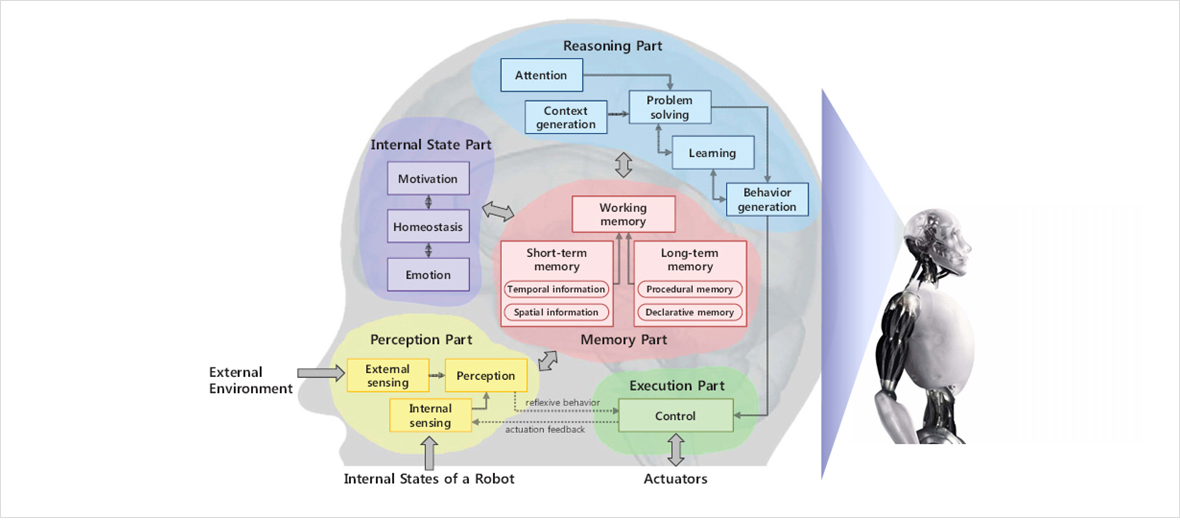
AI for Cooperative Robots
Our eventual goal is to develop Robots That Evolve (RTE) as well as Robots That Work (RTW), Robots That Interact (RTI), Robots That Feel (RTF), and Robots That Cooperate (RTC). For intelligent operation of the robots, the following Intelligence Operating Architecture (IOA) is applied as the basis.
Our research team focuses on developing a system that operates multiple robots for the following purposes:
We aim to develop a task sequence learning mechanism required for multiple robots’ cooperation and to apply this mechanism in real life scenarios.
Our research team focuses on developing a system that operates multiple robots for the following purposes:
- obtain a large amount of data from an unfamiliar environment in a short period of time
- perform complex tasks that are difficult or even impossible for a single machine.
We aim to develop a task sequence learning mechanism required for multiple robots’ cooperation and to apply this mechanism in real life scenarios.

Research Topics
- Cooperation between Multiple Robots Based on Task Planning
Technology is developed where robots share and integrate the information gathered, while they roam the environment, to build a broad knowledge structure. By the technology, a robot can already know the information of the un-experienced territories and utilize it, once it is explored by other robots. - Development of a Mobile Robot Platform
We propose and develop the mobile platform for cooperation between robots . Multi-modal sensors, such as 360 degree cam, RGBD cam, LASER sensor, thermal sensor, etc., will be integrated on board to get a variety of types of motions. Omni-wheel is utilized for convenience in motion. - Development of a Learning Algorithm for AI
Technology to learn a sequence of behaviors for cooperation among robots based on deep ART. Even though robots are to fulfill one task, their different assignments makes them learn different task plan. Deep ART enables the learning of individual task planning, which are integrated to conform in one whole plan.
Key Technology
- Task planning
- Mobile robot platform
- Memory learning
- IOA
- Intelligent interactive technology


